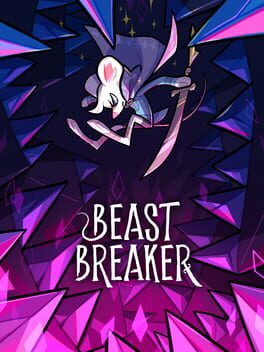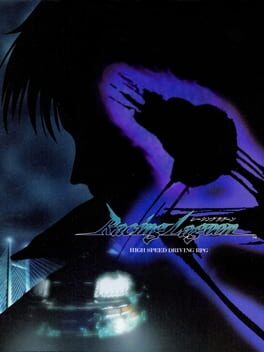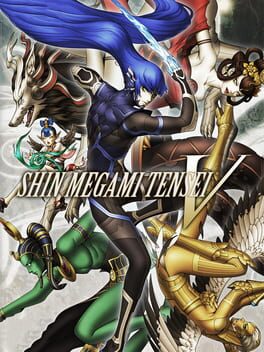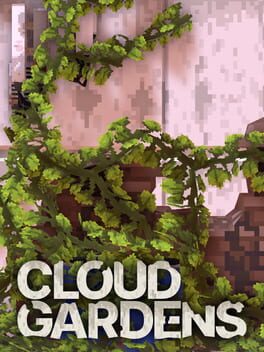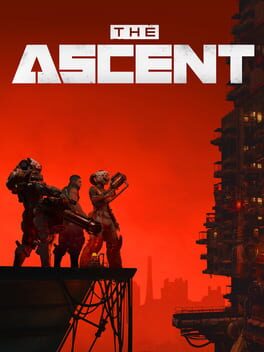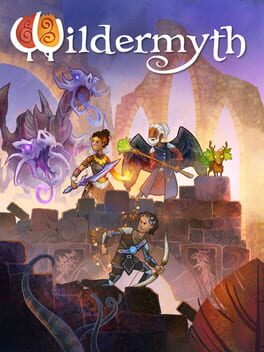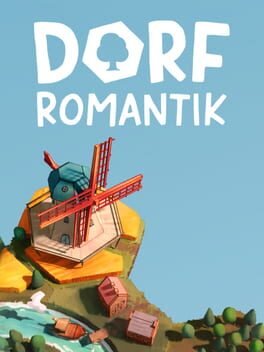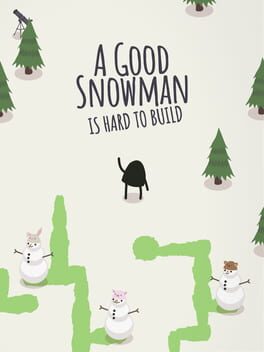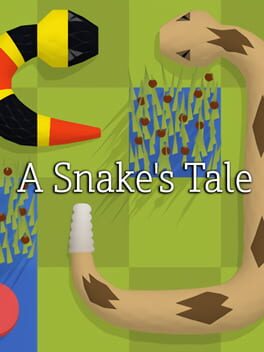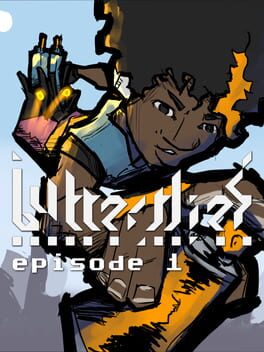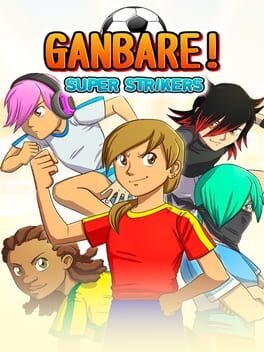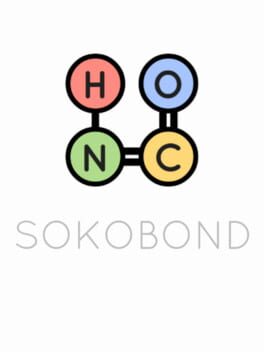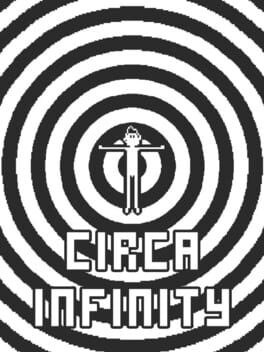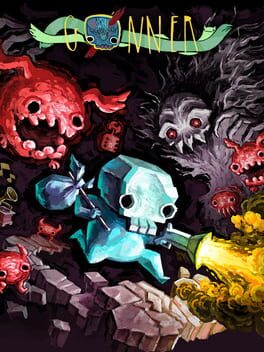sleepy_nice
2021
Beast Breaker was fundamentally the best time I had with a single game in 2021. I gobbled it up completely, crafting and upgrading every single weapon and accessory, trying multiple different loadout configurations, testing different companions and preparation strategies. I don't think I mastered the game, because I never feel that about the best games, but I do think I capital-K Know Beast Breaker very well.
The core loop is fairly simple, but the intricacies come from the physicality of the mechanics. The quality of any given brick breaking game comes down to how frequently you're hitting those pure satisfaction moments, seeing the numbers deplete and the blocks explode with a single attack. Some of my favourites increase the momentum of this feeling by adding additional balls or multipliers (I've probably sunk a couple hundred hours into Hole Down on my phone because of how good it gets this), but Beast Breakers customisable depth adds levels of observational and experimental skill to this foundation. Certain Beasts favour certain weapons and strategies, and sometimes the perfect angle isn't possible depending on the way the Beast moves, so a successful Break attempt requires visual calculus, an understanding of the strengths of your loadout, foresight into future turns and ability management. Add to that the ever-present threat of loss due to the rampage mechanic, and you find yourself in tense late-game situations where minute degrees of an angle can spell either utter failure, or lead to living to fight another round.
This dynamic tension feels so full of friction, and brings to mind some of my favourite tactics games. Honestly, the closest tonal equivalent I can find to this game is Final Fantasy Tactics Advance, one of my favourite games of all time. In that world too, load-out, preparation and foresight are key factors to victory above any aggressive action you take in a fight. And also similarly, finding broken combinations of weapons and accessories can lead to moments of absolute joy as you let rip on an unsuspecting opponent.
At this point, I feel I've exhausted what the game has to offer, and that's absolutely fine. Not every game has to be a constant service to the player who purchased it. However if I'm going to be critical of any aspect it's that the final, multi-phase boss fight felt so great that I wish there were more like it in the post-game. Taking on that same Beast variety without the threat of losing on the 2nd or 3rd phase and having to start again took some of the threat away in a manner that felt a little anticlimactic. However, if my main criticism of this game is "I wish there was an infinite horde mode" then I think that's probably a pretty damn good thing.
I won't touch the story much, because as heartfelt and sincere as it is it wasn't the main focus for me. There are some great character interactions, and the ending was wildly and hilariously blunt in it's message (I don't think I've ever had such a colourful piece of media say to me "the people in charge will never help you" in such a delightful way). It's a serviceable veneer, in exactly the way I want it to be.
The core loop is fairly simple, but the intricacies come from the physicality of the mechanics. The quality of any given brick breaking game comes down to how frequently you're hitting those pure satisfaction moments, seeing the numbers deplete and the blocks explode with a single attack. Some of my favourites increase the momentum of this feeling by adding additional balls or multipliers (I've probably sunk a couple hundred hours into Hole Down on my phone because of how good it gets this), but Beast Breakers customisable depth adds levels of observational and experimental skill to this foundation. Certain Beasts favour certain weapons and strategies, and sometimes the perfect angle isn't possible depending on the way the Beast moves, so a successful Break attempt requires visual calculus, an understanding of the strengths of your loadout, foresight into future turns and ability management. Add to that the ever-present threat of loss due to the rampage mechanic, and you find yourself in tense late-game situations where minute degrees of an angle can spell either utter failure, or lead to living to fight another round.
This dynamic tension feels so full of friction, and brings to mind some of my favourite tactics games. Honestly, the closest tonal equivalent I can find to this game is Final Fantasy Tactics Advance, one of my favourite games of all time. In that world too, load-out, preparation and foresight are key factors to victory above any aggressive action you take in a fight. And also similarly, finding broken combinations of weapons and accessories can lead to moments of absolute joy as you let rip on an unsuspecting opponent.
At this point, I feel I've exhausted what the game has to offer, and that's absolutely fine. Not every game has to be a constant service to the player who purchased it. However if I'm going to be critical of any aspect it's that the final, multi-phase boss fight felt so great that I wish there were more like it in the post-game. Taking on that same Beast variety without the threat of losing on the 2nd or 3rd phase and having to start again took some of the threat away in a manner that felt a little anticlimactic. However, if my main criticism of this game is "I wish there was an infinite horde mode" then I think that's probably a pretty damn good thing.
I won't touch the story much, because as heartfelt and sincere as it is it wasn't the main focus for me. There are some great character interactions, and the ending was wildly and hilariously blunt in it's message (I don't think I've ever had such a colourful piece of media say to me "the people in charge will never help you" in such a delightful way). It's a serviceable veneer, in exactly the way I want it to be.
1999
This feels like a technicality for my 2021 list, as it's a 1999 Japan-only game which finally got a fan-made translation, but fuck me if it doesn't warrant a mention. What an interesting relic, and what a gorgeous experience. I hope it's unofficial release grabs the attention of a couple young and impressionable people so we get 3 or 4 indie games directly inspired by it in a few years.
2021
I have to admit, I'm a little bit of a Shin Megami Tensei poser. I only played the first couple of hours of SMT IV (which I don't even really remember), and when it comes to the Persona series I've only played and beaten 5. So, maybe my appreciation of SMTV is a little skewed, because I'm sure what I love about this game is in all of the other instalments of the series (probably done better).
Nevertheless, let me try and count all of the things I love about this game: I love the numbers, I love the frequency with which they go up. I love the demons, I love the writing, I love the negotiations. I love the fusion system, I love calculating the most ideal combination of demons to best avoid spending currency and carrying over the best set of abilities. I love the look of the game, the way the Netherworld cascades, I love the colours and the sounds. I love the music, I love every time the battle theme kicks in properly after the first attack is made. I love slowly discovering the best economy of actions in order to prolong my turn before the enemy gets a chance to strike. I love sliding down dunes, I love exploring the landscape in piecemeal chunks until I feel like I understand it's twists before moving onto the next area. I love just staring into the skybox, there's so much detail in every inch of this universe.
Here's what else I really enjoy that no-one else seems to: I love seeing the seams of the engine tear apart! This game is broken and botched in so many ways because of the weakness of the platform it's on, but I think it's great! The way the framerate stutters on an NPC in the distance and then equalises as I get into range of it is hilarious, the way texures pop in on a demon a second too late as I'm scrolling through the compendium is cartoonish. I might be in the minority here, but I actually like being reminded that I'm playing a game people have made, and seeing this stuff is like seeing the errant brushstrokes on a painted canvas up close.
Nevertheless, let me try and count all of the things I love about this game: I love the numbers, I love the frequency with which they go up. I love the demons, I love the writing, I love the negotiations. I love the fusion system, I love calculating the most ideal combination of demons to best avoid spending currency and carrying over the best set of abilities. I love the look of the game, the way the Netherworld cascades, I love the colours and the sounds. I love the music, I love every time the battle theme kicks in properly after the first attack is made. I love slowly discovering the best economy of actions in order to prolong my turn before the enemy gets a chance to strike. I love sliding down dunes, I love exploring the landscape in piecemeal chunks until I feel like I understand it's twists before moving onto the next area. I love just staring into the skybox, there's so much detail in every inch of this universe.
Here's what else I really enjoy that no-one else seems to: I love seeing the seams of the engine tear apart! This game is broken and botched in so many ways because of the weakness of the platform it's on, but I think it's great! The way the framerate stutters on an NPC in the distance and then equalises as I get into range of it is hilarious, the way texures pop in on a demon a second too late as I'm scrolling through the compendium is cartoonish. I might be in the minority here, but I actually like being reminded that I'm playing a game people have made, and seeing this stuff is like seeing the errant brushstrokes on a painted canvas up close.
2020
For much of this year I found playing most video games nearly impossible without getting a truly unpleasant anxious rush, and Cloud Gardens was the best medicine for that feeling that I could have been prescribed.
Lots of games are meditative, but not nearly as many are 'meditations' - by which I mean in the transitive sense, allowing one to reflect or focus thoughts onto a repetitive action.
Cloud Gardens gave me pause on several occasions when I considered the implications it was laying out: that human trash and inorganic detritus could, under certain solitary conditions, give rise to it's own life. It almost felt radical in it's simplicity, placing these objects and allowing their aura to emanate and their essence to grow plants through their inherent existence. It made me think about my place in the world, the energy I emit unconsciously, the energy I take in from inanimate objects around me or on my person, the way that reverberates around a room or a house or a yard or a street or a suburb or a city.
It's a simple game, but a beautiful one. For many puzzle games of this variety I find myself reaching for podcasts or documentaries to listen to in the background as I play. With this game, I never felt the need.
Lots of games are meditative, but not nearly as many are 'meditations' - by which I mean in the transitive sense, allowing one to reflect or focus thoughts onto a repetitive action.
Cloud Gardens gave me pause on several occasions when I considered the implications it was laying out: that human trash and inorganic detritus could, under certain solitary conditions, give rise to it's own life. It almost felt radical in it's simplicity, placing these objects and allowing their aura to emanate and their essence to grow plants through their inherent existence. It made me think about my place in the world, the energy I emit unconsciously, the energy I take in from inanimate objects around me or on my person, the way that reverberates around a room or a house or a yard or a street or a suburb or a city.
It's a simple game, but a beautiful one. For many puzzle games of this variety I find myself reaching for podcasts or documentaries to listen to in the background as I play. With this game, I never felt the need.
2021
2019
It took me until early December to start playing this, but by putting off picking it up the only thing that got played was myself. I knew I would adore this game, but I didn't really realise just how thoroughly and completely it would consume me. For a week-long stretch it was literally all I wanted to play.
This game learns the best lessons from tabletop games and then presents them in a phenomenal, economical way. Every time I started a new campaign, I was worried that I wouldn't love my new characters as much as I loved the last one. However within the first dozen encounters, events and opportunities, each group and individual had such a unique combination of flavours that I was never once bored with them. It's a really special thing that this game has achieved!
My only gripes are small, but they keep this game from getting a perfect score from me: firstly, I really don't love the way the game looks, and in fact the handdrawn handcrafted style was one of the reasons I put off playing the game in the first place. The initial pitch was ALWAYS exciting to me, but when I saw footage I faltered. Now, after having played it for many hours I can say that the aesthetic grew on me, but every now and then I felt a little slighted that my party members all felt like they were ripped straight from a budget fantasy webcomic circa 2004, perma-smirking their way through a world otherwise gloriously written.
Secondly (and this might be greedy of me, but) the repetition of certain events over multiple questlines took me out of the experience somewhat. I know there's only so much the devs can prepare, and that inevitably you're going to see the same things happen multiple times. I just feel that there should have been some more care put into making sure you don't see the same event 3 times in 3 consecutive stories, because that specifically was a little jarring to me. This is ESPECIALLY considering how few times the repetitions have happened for me in my first 20 or so hours, it seems really unlucky that the same one or two events and quest opportunities have happened so frequently in completely separate stories so early on in my experience.
Those things aside, I adore this game. Considering there are only three unit types and the combat is relatively simple, there's enough nuance and differentiation between abilities that fights can be handled in a really respectable number of ways. Obviously the main thrust of the game isn't the combat, so the fact that they put this much effort into it at all is honestly nice.
I'll continue playing this game as long as they keep putting out new content for it. I can't wait to see what story I write next.
This game learns the best lessons from tabletop games and then presents them in a phenomenal, economical way. Every time I started a new campaign, I was worried that I wouldn't love my new characters as much as I loved the last one. However within the first dozen encounters, events and opportunities, each group and individual had such a unique combination of flavours that I was never once bored with them. It's a really special thing that this game has achieved!
My only gripes are small, but they keep this game from getting a perfect score from me: firstly, I really don't love the way the game looks, and in fact the handdrawn handcrafted style was one of the reasons I put off playing the game in the first place. The initial pitch was ALWAYS exciting to me, but when I saw footage I faltered. Now, after having played it for many hours I can say that the aesthetic grew on me, but every now and then I felt a little slighted that my party members all felt like they were ripped straight from a budget fantasy webcomic circa 2004, perma-smirking their way through a world otherwise gloriously written.
Secondly (and this might be greedy of me, but) the repetition of certain events over multiple questlines took me out of the experience somewhat. I know there's only so much the devs can prepare, and that inevitably you're going to see the same things happen multiple times. I just feel that there should have been some more care put into making sure you don't see the same event 3 times in 3 consecutive stories, because that specifically was a little jarring to me. This is ESPECIALLY considering how few times the repetitions have happened for me in my first 20 or so hours, it seems really unlucky that the same one or two events and quest opportunities have happened so frequently in completely separate stories so early on in my experience.
Those things aside, I adore this game. Considering there are only three unit types and the combat is relatively simple, there's enough nuance and differentiation between abilities that fights can be handled in a really respectable number of ways. Obviously the main thrust of the game isn't the combat, so the fact that they put this much effort into it at all is honestly nice.
I'll continue playing this game as long as they keep putting out new content for it. I can't wait to see what story I write next.
I cannot be expected to write anything about a remake of a game that means so much to me, so I'll try and keep it short, simple, and relevant to the remake rather than the source material:
The team did a really great job modernising NieR, but by bringing it closer to the memory of Automata and further from the memory of Gestalt maybe a little bit of the magic was lost to me. However everything sounds and looks wonderful, and I relished the opportunity to luxuriate in one of my favourite fantastical worlds once again.
The team did a really great job modernising NieR, but by bringing it closer to the memory of Automata and further from the memory of Gestalt maybe a little bit of the magic was lost to me. However everything sounds and looks wonderful, and I relished the opportunity to luxuriate in one of my favourite fantastical worlds once again.
2021
I played so much of this game that I had to uninstall it. It burrowed into my mind in a remarkably unforeseenly violent fashion. My initial expecations of a relaxation experience turned quickly into a nightmare of numbers and shapes and possibilities.
Ignore the pastoral facade and retreat from the beckoning pacifism. Make no mistake in beholding this work, Dorfromantik is DEVILISH. I loved it but I cannot touch it anymore.
Ignore the pastoral facade and retreat from the beckoning pacifism. Make no mistake in beholding this work, Dorfromantik is DEVILISH. I loved it but I cannot touch it anymore.
This was very cute! I saw a trailer for it years ago on release and completely forgot it existed, so I'm glad I got the chance to experience it finally.
Couple real brain-stumpers in here, found myself nearly brute-forcing a few of the later rooms until the solution always magically came into view. Really well crafted, perfect length (took me a little under an hour to clock it), and I love the post-game surprise too.
Couple real brain-stumpers in here, found myself nearly brute-forcing a few of the later rooms until the solution always magically came into view. Really well crafted, perfect length (took me a little under an hour to clock it), and I love the post-game surprise too.
2017
Woah! Snake's Tale really surprised me with its depth. Did the thing I really like in level-based puzzle games where just as I've gotten my head around one obtuse mechanic, another is added. That accumulation stopped this from being your standard sliding-tile game, I can see the vision here.
There was no hand-holding either, some of the earliest levels you can access had some of the wildest solutions that I needed to come back to after understanding the way the pieces fit together. I LOVED this.
A few things stop this from a perfect score. Firstly the absurd music - it had such a short loop that drove me crazy instantly. If this had some light ambience with occasional variation I could have chilled out in this game forever, but instead I had to find my own soundtrack. Secondly the presentation of the overworld felt a little thin. It's a minor thing, but I actually love how the snakes look in the level, but anytime I had to navigate to the next puzzle it felt like I was looking at an early 00s flash game (which doesn't necessarily have to be a bad thing I guess, but in this case it was).
Definitely high on my recommendations for the Ukraine Bundle
There was no hand-holding either, some of the earliest levels you can access had some of the wildest solutions that I needed to come back to after understanding the way the pieces fit together. I LOVED this.
A few things stop this from a perfect score. Firstly the absurd music - it had such a short loop that drove me crazy instantly. If this had some light ambience with occasional variation I could have chilled out in this game forever, but instead I had to find my own soundtrack. Secondly the presentation of the overworld felt a little thin. It's a minor thing, but I actually love how the snakes look in the level, but anytime I had to navigate to the next puzzle it felt like I was looking at an early 00s flash game (which doesn't necessarily have to be a bad thing I guess, but in this case it was).
Definitely high on my recommendations for the Ukraine Bundle
Butterflies Episode 1 pays perfect tribute to its influences and feels great to move around in. There's really nice sense of momentum with only a few camera issues keeping it from feeling super polished.
I really liked the mission structure in the open world, nice twist on the formula keeping it from being pure Jet Set Radio tribute hour. Unfortunately there's no map (or none that I could find) and the world does not have enough distinguishing landmarks to not continually get lost, and I wasn't able to find all graffiti spots and missions.
Episode 2 is in the bundle too, I'm excited to see what the developers learned and changed between instalments. Might revisit this and 100% it one day!
I really liked the mission structure in the open world, nice twist on the formula keeping it from being pure Jet Set Radio tribute hour. Unfortunately there's no map (or none that I could find) and the world does not have enough distinguishing landmarks to not continually get lost, and I wasn't able to find all graffiti spots and missions.
Episode 2 is in the bundle too, I'm excited to see what the developers learned and changed between instalments. Might revisit this and 100% it one day!
I’ve had a few cool little experiences up to now, but this is the first truly exciting game I’ve experienced thanks to the Ukraine Bundle.
Really solid concept and execution, great music, sequentially engaging. I particularly like the mastery system which reminds me of FFTA, where abilities are learned through equipment but once that ability has been mastered you don’t need to keep that piece of equipment on your team member to have them use it.
Also, the AI ripped me to pieces a few times when I tried to complete the bonus objectives, which was a nice way of balancing the incentive to try and do them every time. As a result I missed a few pieces of gear, so might go back and try and get them now that I’ve got end-game stats.
Loved a lot here that I haven’t mentioned yet - the character and team customisation is sick, the story is sparse but has a perfect minimalist shonen vibe to it. Also love that it was made by a solo Australian developer!
It’s a little rough around the edges in some aspects which keeps it from a perfect score for me. Some menuing is a bit unintuitive and occasionally the interface gets a bit cluttered with noise which made it hard to assess my best moves. Small quibbles, nothing that kept me from enjoying this for the few hours it took me to clock it.
Can’t wait to see what this dev does next!
Really solid concept and execution, great music, sequentially engaging. I particularly like the mastery system which reminds me of FFTA, where abilities are learned through equipment but once that ability has been mastered you don’t need to keep that piece of equipment on your team member to have them use it.
Also, the AI ripped me to pieces a few times when I tried to complete the bonus objectives, which was a nice way of balancing the incentive to try and do them every time. As a result I missed a few pieces of gear, so might go back and try and get them now that I’ve got end-game stats.
Loved a lot here that I haven’t mentioned yet - the character and team customisation is sick, the story is sparse but has a perfect minimalist shonen vibe to it. Also love that it was made by a solo Australian developer!
It’s a little rough around the edges in some aspects which keeps it from a perfect score for me. Some menuing is a bit unintuitive and occasionally the interface gets a bit cluttered with noise which made it hard to assess my best moves. Small quibbles, nothing that kept me from enjoying this for the few hours it took me to clock it.
Can’t wait to see what this dev does next!
2014
I've had Sokobond vaguely on my radar for nearly 10 years (!!!!) when I remember it getting featured in some PAX roundups around the time of release. I feel like I may have benefitted from playing it earlier, because unfortunately now the cool things that this game does aren't particularly novel - echoes of what it's doing can be found to greater effect in English Country Tune, Hexcells, heck even A Good Snowman Is Hard to Build (which I also played as part of my Ukraine Itch Bundle deep-dive).
All that said, this is for sure a Good Puzzle Time, and the theme of putting together compound molecules tickled me just right at a time when I'm relearning a lot of high school chemistry. The music is GORGEOUS, composed by Ryan Roth who also did the music for Starseed Pilgrim, Beginners Guide and A Good Snowman (what a fun coincidence). The whole presentation of it is still delicious, even if it's not super unique.
I wasn't able to finish it in a single sitting, but can tell that I got pretty darn close - I don't want to spoil it, but as the map expands out there's a pretty cute reveal that indicated to me how far through I was. Might pick it up later, but the queue is long so who knows !
All that said, this is for sure a Good Puzzle Time, and the theme of putting together compound molecules tickled me just right at a time when I'm relearning a lot of high school chemistry. The music is GORGEOUS, composed by Ryan Roth who also did the music for Starseed Pilgrim, Beginners Guide and A Good Snowman (what a fun coincidence). The whole presentation of it is still delicious, even if it's not super unique.
I wasn't able to finish it in a single sitting, but can tell that I got pretty darn close - I don't want to spoil it, but as the map expands out there's a pretty cute reveal that indicated to me how far through I was. Might pick it up later, but the queue is long so who knows !
2015
I started Circa Infinity pretty unimpressed with what seemed like too simple an idea to be interesting to me in 2022. However by level 2 I was thoroughly hooked into the vision of this game, which is in equal parts both compelling and utterly disorienting.
This is a twitch-platformer in the vein of VVVVVV or Love, but segmented out in digestible chunks in the same way a puzzle game might do it. I think that's where my initial impression may have faltered, because I assumed the challenge was cerebral rather than dextrous. Turns out, it's both! The response-time needed for some of these levels was preposterous, but progression was (for the most part) pretty forgiving. I really liked the way checkpoints were implemented organically as circle-layers, rather than through some obvious flag the way most games do them.
I also REALLY loved the bosses, and the first was where my feelings really started to shift. Rather than simply acting as a conclusive event, they function as a test of the skills developed in each level, which is - I think - the ideal of what a video game "boss" should be. The only thing I didn't love was that, upon taking damage, each boss fight starts again from the beginning. I totally understand why this was done, but it resulted in a frustration that eventually overtook me and prevented me from getting past the fourth level.
This is absolutely a game I intend to return to and complete one day, really good stuff.
This is a twitch-platformer in the vein of VVVVVV or Love, but segmented out in digestible chunks in the same way a puzzle game might do it. I think that's where my initial impression may have faltered, because I assumed the challenge was cerebral rather than dextrous. Turns out, it's both! The response-time needed for some of these levels was preposterous, but progression was (for the most part) pretty forgiving. I really liked the way checkpoints were implemented organically as circle-layers, rather than through some obvious flag the way most games do them.
I also REALLY loved the bosses, and the first was where my feelings really started to shift. Rather than simply acting as a conclusive event, they function as a test of the skills developed in each level, which is - I think - the ideal of what a video game "boss" should be. The only thing I didn't love was that, upon taking damage, each boss fight starts again from the beginning. I totally understand why this was done, but it resulted in a frustration that eventually overtook me and prevented me from getting past the fourth level.
This is absolutely a game I intend to return to and complete one day, really good stuff.
2016
Played this live on stream on the 23rd of March (twitch.tv/sleepy_nice, come thru).
Total banger of a game, but might just be a little too hard for me to get much further through than what I've already seen. The dynamic of GoNNER rewards speed but punishes imprecision, and is a teensy bit too stressful for me - it's in my nature to try and rack up combos to collect the glyphs but I'm not able to balance that impulse with precise movement.
Loved the feel of everything, the jumps and the guns and the wall-jumping are all really finely tuned. Love the painterly style and the way the levels build around you as you traverse through them. I liked how little was communicated to you, letting you learn as a player what you're meant to be doing as you experiment. I would have appreciated a LITTLE bit more information when it came to certain masks or accessories, because the thrill of discovery was marred a little bit by the chance you had to take on a new item when you're already in the middle of a run.
There are still a couple mechanical mysteries to me. For instance, on my last run (where I managed to get the furthest I've been able to reach, just past the 2nd boss room and into level 3) I got such a good combo going that the colour scheme of the rooms changed to green. I'm not sure what that meant! It might have meant nothing.
But yeah, highly recommend giving this game a whirl but I'm still learning to be any good at it. Let's see if I ever get there.
Total banger of a game, but might just be a little too hard for me to get much further through than what I've already seen. The dynamic of GoNNER rewards speed but punishes imprecision, and is a teensy bit too stressful for me - it's in my nature to try and rack up combos to collect the glyphs but I'm not able to balance that impulse with precise movement.
Loved the feel of everything, the jumps and the guns and the wall-jumping are all really finely tuned. Love the painterly style and the way the levels build around you as you traverse through them. I liked how little was communicated to you, letting you learn as a player what you're meant to be doing as you experiment. I would have appreciated a LITTLE bit more information when it came to certain masks or accessories, because the thrill of discovery was marred a little bit by the chance you had to take on a new item when you're already in the middle of a run.
There are still a couple mechanical mysteries to me. For instance, on my last run (where I managed to get the furthest I've been able to reach, just past the 2nd boss room and into level 3) I got such a good combo going that the colour scheme of the rooms changed to green. I'm not sure what that meant! It might have meant nothing.
But yeah, highly recommend giving this game a whirl but I'm still learning to be any good at it. Let's see if I ever get there.
